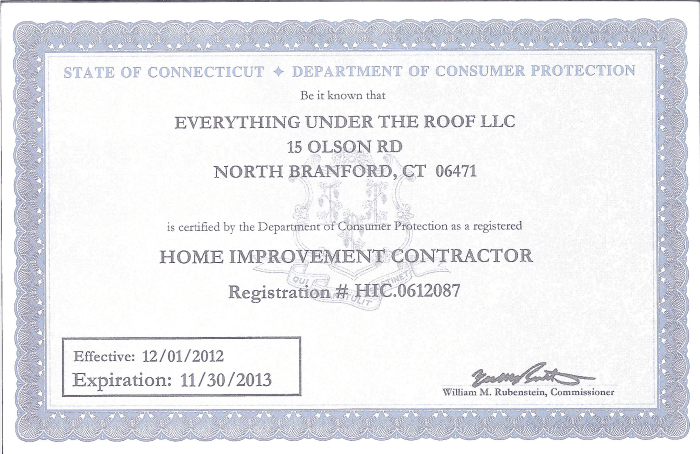Embark on a journey through the world of licensed home improvement contractors. Discover the importance of hiring professionals, the qualifications they hold, legal compliance, and the impact on the quality of work. Let's dive in!
Importance of Hiring Licensed Home Improvement Contractors

When it comes to home improvement projects, hiring licensed contractors is crucial for ensuring quality work and legal protection.
Quality Assurance
Licensed contractors have the training, skills, and experience to deliver high-quality workmanship. They are well-versed in building codes, safety regulations, and best practices in the industry.
Legal Protection
Working with licensed contractors provides legal protection for both homeowners and contractors. Licensed professionals have liability insurance, which covers any damages or injuries that may occur during the project.
Risks of Hiring Unlicensed Contractors
- Unlicensed contractors may lack the necessary skills and knowledge to complete the job correctly, leading to subpar workmanship and potential safety hazards.
- Homeowners risk being held liable for any accidents or injuries that occur on their property if they hire unlicensed contractors who do not have insurance coverage.
- Unlicensed contractors may cut corners, use substandard materials, or fail to obtain the required permits, putting the homeowner at risk of fines or legal consequences.
Qualifications and Certifications
When it comes to hiring a licensed home improvement contractor, it is essential to understand the qualifications and certifications required for them to obtain a license. These credentials not only ensure that the contractor is knowledgeable and skilled in their field but also provide a sense of security for homeowners.
Qualifications for Obtaining a License
To become a licensed home improvement contractor, individuals typically need to meet certain qualifications set by their state or local licensing board. These qualifications may include:
- Evidence of relevant work experience in the home improvement industry.
- Completion of a formal education or training program related to home improvement.
- Passing a written exam to demonstrate knowledge of building codes, safety regulations, and industry best practices.
- Proof of liability insurance and bonding to protect both the contractor and the homeowner in case of accidents or damages.
Verifying a Contractor’s License and Credentials
Before hiring a home improvement contractor, it is crucial to verify their license and credentials to ensure their legitimacy. This can typically be done by:
- Checking with the state or local licensing board to confirm the contractor's license status and any complaints or disciplinary actions against them.
- Requesting copies of the contractor's insurance and bonding certificates to validate their coverage.
- Reviewing references from past clients to gauge the contractor's reputation and quality of work.
Importance of Certifications
Certifications in specific areas of home improvement, such as plumbing, electrical work, or HVAC installation, can further enhance a contractor's credibility and expertise. These certifications indicate that the contractor has undergone additional training and testing to specialize in a particular aspect of home improvement, ensuring that they are well-equipped to handle complex projects and adhere to industry standards.
Legal Compliance and Permits

Ensuring legal compliance and obtaining necessary permits are crucial aspects of any home improvement project
Types of Permits for Home Improvement Projects
Licensed home improvement contractors typically handle various types of permits to ensure that the project meets legal requirements and safety standards. Some common permits include:
- Building Permits: These permits are necessary for structural changes, additions, or major renovations that impact the overall integrity of the building.
- Electrical Permits: Required for any electrical work, such as wiring, outlets, or lighting installations.
- Plumbing Permits: Essential for plumbing-related projects, including pipe installations, water heater replacements, or bathroom remodels.
- Zoning Permits: Needed to ensure that the project complies with local zoning laws and regulations.
Consequences of Non-Compliance
Working with contractors who do not follow legal regulations can lead to severe consequences for homeowners. Some of the risks associated with non-compliance include:
- Project Delays: Without the necessary permits, the work may be halted or delayed, causing inconvenience and additional costs.
- Fines and Penalties: Violating building codes or regulations can result in hefty fines or penalties imposed by local authorities.
- Safety Hazards: Skipping required permits may compromise the safety and structural integrity of the project, putting the occupants at risk.
- Legal Issues: Non-compliance with regulations can lead to legal disputes, liabilities, or even the need to undo the work done improperly.
Quality of Work and Reputation

When it comes to home improvement projects, the quality of work and the contractor's reputation are crucial factors to consider. A licensed contractor's expertise and professionalism can significantly impact the outcome of the project, ensuring a high level of craftsmanship and customer satisfaction.
How a Contractor’s License Reflects Workmanship
A contractor's license serves as evidence of their training, experience, and qualifications in their field. It indicates that they have met certain standards set by licensing boards, demonstrating their ability to perform work up to industry standards. Licensed contractors are more likely to possess the necessary skills and knowledge to deliver quality results.
Examples of Licensing Contribution to Reputation
- Licensed contractors are often affiliated with professional associations or trade organizations, which can enhance their credibility and reputation in the industry.
- Having a license demonstrates a commitment to compliance with regulations and codes, showcasing a contractor's dedication to upholding quality standards.
- Clients tend to trust licensed contractors more, as they are perceived as more reliable and accountable for their work.
Assessing Quality Through Reviews and Feedback
Reviews and feedback from past clients play a vital role in evaluating a licensed contractor's quality of work. Positive reviews highlight the contractor's ability to deliver satisfactory results, while negative feedback may indicate areas for improvement. Homeowners can use this information to make informed decisions when selecting a contractor for their home improvement project.
Conclusion
In conclusion, hiring licensed home improvement contractors is the key to ensuring top-notch quality work and legal protection for your projects. Remember, always choose licensed professionals for a stress-free renovation experience!
Top FAQs
What are the benefits of hiring licensed home improvement contractors?
Licensed contractors offer quality work and legal protection, ensuring a smooth renovation process.
How can I verify a contractor's license?
You can check a contractor's license by contacting the relevant licensing board or agency in your state.
What permits do licensed contractors typically handle?
Licensed contractors usually manage building permits, zoning permits, and any other necessary permits for home improvement projects.
How do reviews help assess a licensed contractor's work quality?
Reviews and feedback from previous clients provide insights into the quality of work and overall satisfaction with a contractor's services.












